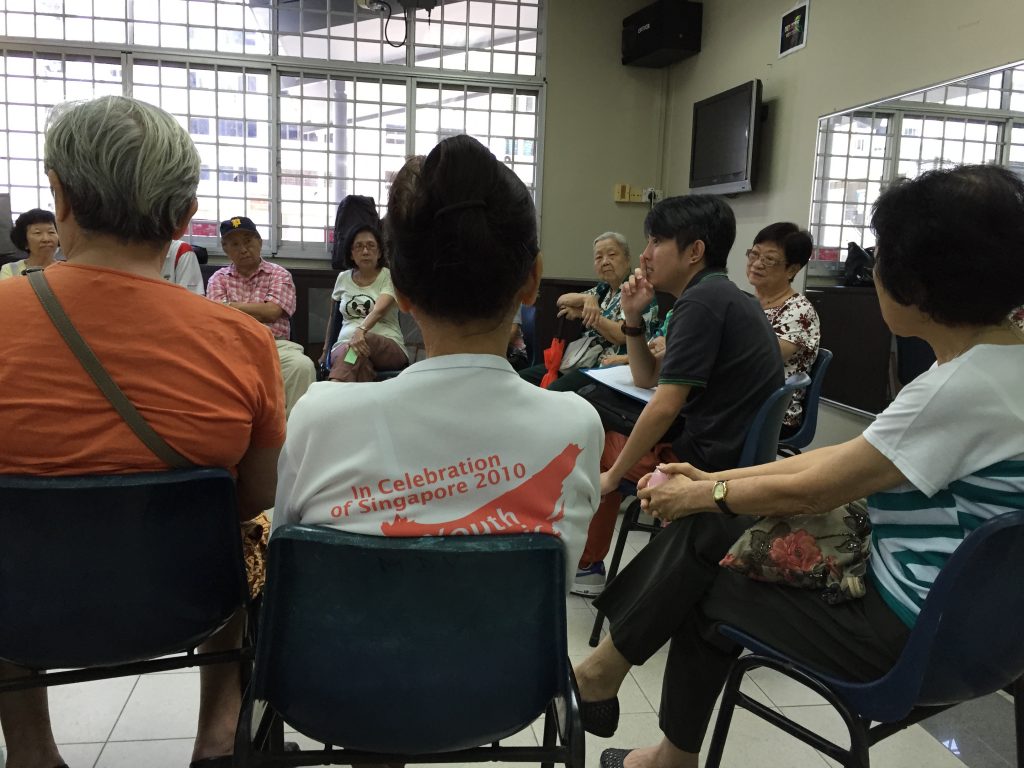By Mark Lin
In recent years, much attention has been paid to the elderly population of Singapore—often manifested as articles about the “silver tsunami” as well as an ageing population’s impact on the economy, workforce and healthcare. However, there are much fewer discussions that touch on how a growing number of people are dying, and how these deaths can pose significant challenges in themselves.
At the macro level, the general belief is that an economy can be kept going as long as businesses raise productivity and expand their market presence through “game-changing” innovations. However, when it comes to addressing a problem like elderly isolation (or inclusion— depending on one’s view of the glass being half-empty or half-full), the solution is less obvious. At least from the way I see it, I am not so sure if we as a society truly understand the nature of this “problem” in the first place. In my view, elderly isolation is more of a side effect than a problem, and I will illustrate my point through the story of Tom (not his real name), a seventy-something widower who passed away last year.
 Mark facilitating a group of seniors in group “die-logue”
Mark facilitating a group of seniors in group “die-logue”
Tom's Story
Tom was an introverted man with very few friends. Married with no children, his wife had been his main companion and link to the outside world until she lost her battle to fourth-stage breast cancer. Tom had never been close to other members of his immediate and extended family, and after his beloved wife’s death, he became even more alienated from society. How would one have helped someone in Tom’s situation? In theory, a logical “solution” would be to introduce more friends to him and encourage him to join activities at a seniors’ centre. In practice, however, this would be tricky for such a withdrawn individual with longstanding and ingrained introverted behaviours. Lacking basic social etiquette and simple conversational skills, thrusting someone like Tom abruptly into social situations might have made him anxious and nervous. Not only would social events not make him feel more “connected” to people, they might heighten his feelings of vulnerability and fear of being “judged”, thereby convincing him that he would be better off alone.
Tom’s situation leads one to reconsider what it means to be isolated in the first place. For him, this state of being alone was his idea of protection and comfort—even a treasured lifestyle. When social workers cautioned him on the “dangers” of living alone as an elderly person, Tom always gave the same light-hearted reply: “Don’t worry, nothing will happen to me. God will watch over me. If I die, then die lor.” Stories like Tom’s are extremely common among Singapore’s ageing population. It may be easier to convince more extroverted elderly folk of the benefits of a more socially connected lifestyle; however, many older people who are used to living alone tend to feel shy about making new friends. When they think of happiness, winning the lottery might come to mind instead of forming and sustaining meaningful relationships.
When Isolation Chooses You
To properly address the issue of elderly isolation, we have to acknowledge its different dimensions. Some people become disconnected from society not out of their own free will but due to circumstances such as death in the family or abandonment by loved ones.
In Tom’s case, he did not choose to live alone in his old age, but his wife’s passing and his having no children predisposed him to such a situation. Tom had the freedom to decide how to handle his newfound status—as a childless widow and elderly person living by himself—to forge a new social network or to adapt to being alone. Being naturally introverted, he found it easier to do the latter. In his book, Existential Psychotherapy, American existential psychiatrist Irvin David Yalom cites four ultimate concerns people must reconcile themselves with, as part of being human: death, isolation, freedom and meaninglessness.1
Had Tom passed away before his wife, he would not have had to deal with issues of isolation or meaninglessness arising from the death of one’s sole companion in life. But because he had based all his social-related needs on one meaningful relationship (with his wife), her passing meant that his previously “meaningful” life had become lonely and “meaningless”.
Meaningful "Die-logue"
Death forces us to re-evaluate our purpose and intimate connection with people. Being able to confront death helps us to re-evaluate what we value as important, because only then do we learn to start with the end in mind. People who are mindful of their mortality tend to pursue a purpose-filled lifestyle: some become more spiritual, others take up new hobbies and learn new skills, while certain individuals devote their time to fostering meaningful interpersonal relationships.
Society as a whole is uncomfortable or squeamish about a topic as “heavy” as death. However, a death-avoidant culture inhibits what’s needed for the elderly to “flourish”—human connectedness, finding meaning in suffering and building legacy. As such, there is a great need for more open conversations about death: as a society, in the mainstream media, among ourselves, and especially with the elderly.
Tom’s resigned attitude towards his own death (“If I die, then die lor”) may have prevented him from experiencing the desire for meaningful human connection. Perhaps the answer to elderly isolation, then, is not so much about boosting social interaction, but first about an earnest conversation about one’s death, mortality, and the meaning of it all.
Note
1 Irvin D. Yalom, Existential Psychotherapy (New York: Basic Books, 1980).
 |
Mark Lin is Deputy Director, Special Projects (Eldercare) at Montfort Care. He is a registered social worker with the Singapore Association of Social Workers and has been practising social work for seven years, including five years of direct work with seniors. Mark holds a Bachelor of Social Work (Hons) and is certified in Choice Theory & Reality Therapy. He is also an Advance Care Planning facilitator and ESTHER Coach trainer. He is presently working on a new initiative called the Good Death Project (www.goodddeath.org.sg) to encourage early end-of-life conversations and planning through an Advance Care Plan. Mark manages a team to provide case management and counselling support for clients with life-limiting illnesses and post-death concerns for survivors impacted by the death of their loved ones. He can be reached at mark@ montfortcare.org.sg |








Comments